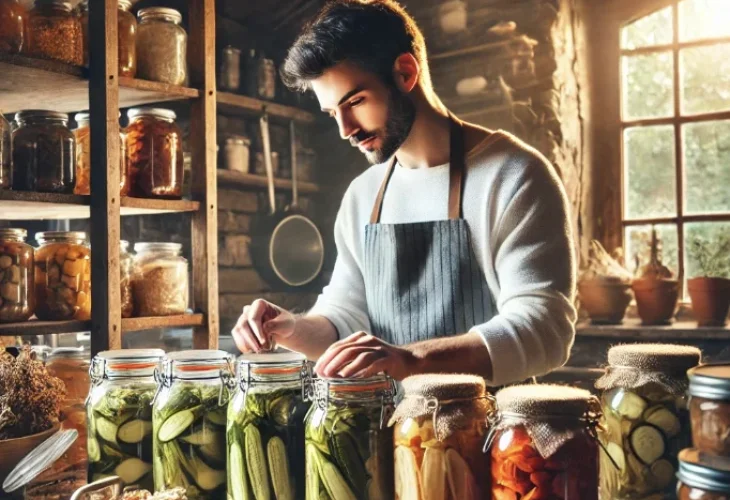How Chefs Prevent Food from Spoiling: 15 Amazing Methods
Chefs utilize a variety of techniques to prevent food from spoiling and keep it fresh for longer. Here are 15 primary methods to bookmark for future reference.

1. Refrigeration and Storage
One of the most effective means of preserving food is storing it at a low temperature (0-4 degrees Celsius), which slows bacterial growth.
2. Freezing
Freezing at a temperature below -5 degrees Celsius stops the biological processes of spoilage and allows for food preservation for months or even years.
3. Drying
Drying food removes moisture, preventing bacterial and mold growth. Food dehydrators or natural sun drying can be used to adopt this method.
4. Vacuum Sealing
Removing air from food packaging reduces oxygen levels and prevents the activity of bacteria that cause spoilage. This is also why vacuum-sealed legumes are less prone to insect contamination.
5. Salting
Using salt helps in preserving food by denying moisture to bacteria, preventing their proliferation, as seen in salted fish and cured meats.
6. Pickling in Vinegar
The high acidity in vinegar kills bacteria and slows down food spoilage.
7. Smoking
Smoke contains natural antibacterial substances that extend the shelf life of meats and fish.
8. Use of Sugar
Ever wonder how fruit jam lasts for years? It’s simple: sugar. Sugar preserves the fruit by preventing bacterial development, as it absorbs moisture.
9. Storing Food in Oil
Oil prevents food from being exposed to oxygen and slows the decay process, as seen in preserved cheeses or sun-dried tomatoes in olive oil.
10. Fermentation
Sauerkraut or yogurt are made through fermentation, a process where good bacteria break down sugars and produce acids that preserve food.
11. Light and Moisture-Proof Containers
Oxygen, moisture, and light affect food decay rates. Proper storage in airtight containers can preserve food for longer.
12. Use of Special Gases
Some industrial packaging uses gases like nitrogen or carbon dioxide to slow the oxidation and spoilage rate of food.
13. Adding Natural Preservatives
Lemon, garlic, rosemary, and honey contain natural antibacterial properties that prevent bacterial growth and delay spoilage.
14. Keeping Certain Foods Apart
Some fruits and vegetables emit ethylene gas, which accelerates ripening. Proper storage (e.g., separating bananas, apples, and other sensitive vegetables) prevents premature spoilage.
15. Maintaining Hygiene and Cleanliness
Keeping work surfaces clean, washing hands, using sterile storage containers, and maintaining a dry working environment prevent the transfer of bacteria to food.
All these methods, when used correctly, can extend food shelf life and prevent waste.

